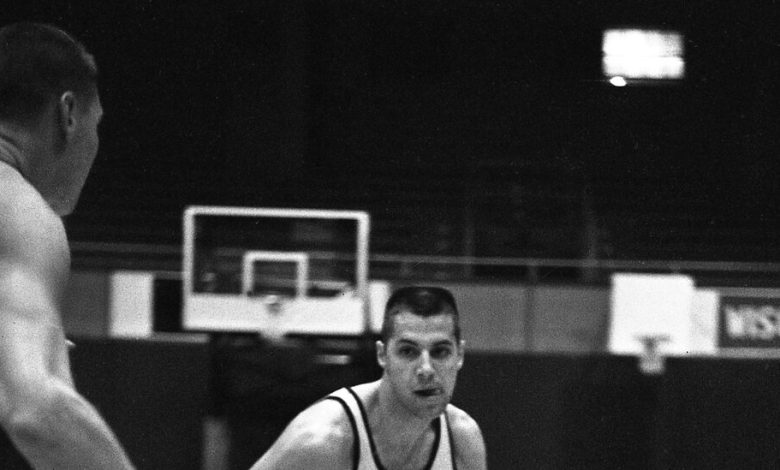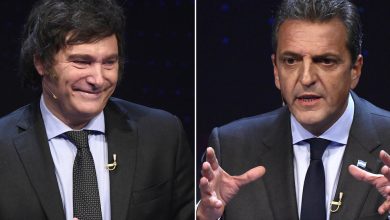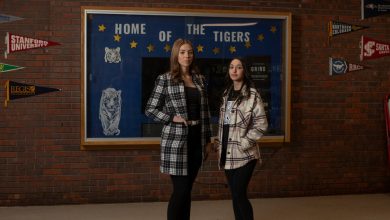Terry Dischinger, College Basketball Star and Olympian, Dies at 82

Terry Dischinger, one of the greatest players in Purdue University basketball history and the youngest member of the U.S. Olympic team that won a gold medal in Rome in 1960, died on Oct. 9 in Lake Oswego, Ore. He was 82.
The cause of his death, at a memory care center, was complications of Alzheimer’s disease, said his son, Bill Dischinger.
Dischinger (pronounced DISH-ing-er) was an undisputed star at Purdue, in West Lafayette, Ind. A 6-foot-7, 190-pound center, he led the Big Ten in scoring for three straight seasons; was a two-time first-team consensus all-American; and scored at least 40 points in a game nine times, still a Purdue record.
After averaging 26.3 points in his sophomore season, Dischinger made the Olympic team, which included several future members of the Naismith Memorial Basketball Hall of Fame, among them Oscar Robertson, Jerry West, Jerry Lucas and Walt Bellamy. The U.S. won all eight of its games, including the final against Brazil, to earn the gold medal. Dischinger averaged 11.8 points a game, fourth best on the team.
Early the next year, when Dischinger was a junior, a short profile in Sports Illustrated described the skillful fakes, fast first steps and soft jump shots that made him a Big Ten star, and recalled a moment when he vexed Robertson during a practice at the Olympics.
According to the profile, Robertson, whom Dischinger idolized, “ended one frustrating Olympic scrimmage in which he was trying to guard Dischinger by shouting, ‘Man, go ahead and score. Who cares!’ as Terry faked him out for the nth time.”
Dischinger was inducted into the National Collegiate Basketball Hall of Fame in 2019.
Terry Gilbert Dischinger was born on Nov. 21, 1940, in Anderson, Ind. His father, Donas, was a high school teacher and football coach. His mother, Clara (Wood) Dischinger, was a physical education teacher.
Dischinger was chosen by the Chicago Zephyrs in the first round of the 1962 N.B.A. draft and broke in with them as if he were still at Purdue. Converted to forward, he scored 25.5 points a game in the 1962-63 season, while playing only 57 games on a part-time contract that let him complete his bachelor’s degree in chemical engineering.
Despite not playing a full season, he was voted Rookie of the Year, beating out other future Hall of Famers like Dave DeBusschere of the Detroit Pistons and John Havlicek of the Boston Celtics.
Dischinger also played on All-Star teams in his first three seasons.
“He was a very smart player with a great shot,” Bill Bradley, the former New York Knicks forward and U.S. senator, who frequently played against Dischinger, said in a phone interview. “I remember him as much for the 1960 Olympics as for him playing in the N.B.A.”
Dischinger remained with the Zephyrs when they relocated to Baltimore and were renamed the Bullets after his rookie year. He averaged 20.8 points a game in 1963-64. After one season in Baltimore, he was traded to Detroit, where he scored an average of 18.2 points a game. After two years of Army service, he returned to the Pistons in 1967.
Having played on an Army basketball team, he told The Detroit Free Press in 1971, “I thought I could make the readjustment to the pros again pretty quickly.”
But, he added, “it didn’t work out that way.”
A knee injury reduced his playing time and his productivity. He never averaged more than 13.1 points a game in his last six seasons, five with the Pistons and his last with the Portland Trail Blazers.
By the time his basketball career ended in 1973, he was already planning his next one. A friend in the Army had piqued his interest in a post-basketball career in dentistry, and he began studying at the University of Tennessee College of Dentistry in the summers between N.B.A. seasons. He completed his D.D.S. degree in 1974 and went on to earn a certificate in orthodontics in 1977 from the University of Oregon Health Sciences Center (now Oregon Health & Science University).
He held several patents, including one for a version of an appliance to help an underdeveloped jaw grow. He taught orthodontics and had a practice in Lake Oswego, which Bill Dischinger joined 24 years ago and now runs.
In addition to his son, Dischinger is survived by his wife, Mary (Dunn) Dischinger, whom he married in 1962; his daughter, Kelly Loomis; his sisters, Nancy Rudolph and Tommy Groth; and nine grandchildren. Another son, Terry, died in 2010.
Heading into the final game of his college basketball career against the University of Michigan in March 1962, Dischinger was tied for the Big Ten scoring lead with Jimmy Rayl of Indiana University, which was playing Ohio State.
Before the game, he received a telegram from two Ohio State players — Jerry Lucas, who had become a friend during the Olympics, and John Havlicek — “telling me not to worry — get my points and they’d shut down Rayl,” he told The Journal & Courier of Lafayette in 1980.
Whatever they and their teammates did seemed to work.
Dischinger won the title with 30 points. Rayl scored 25.





